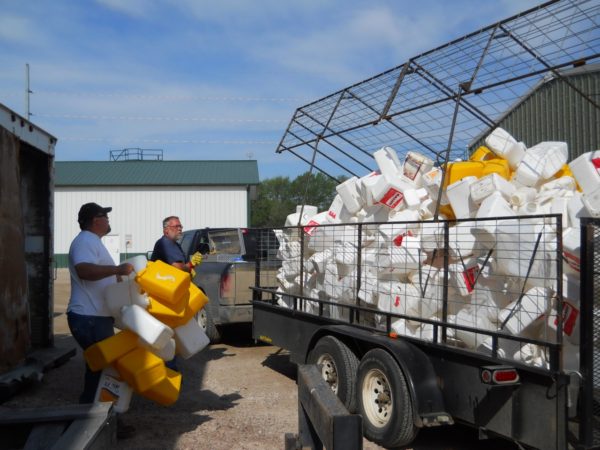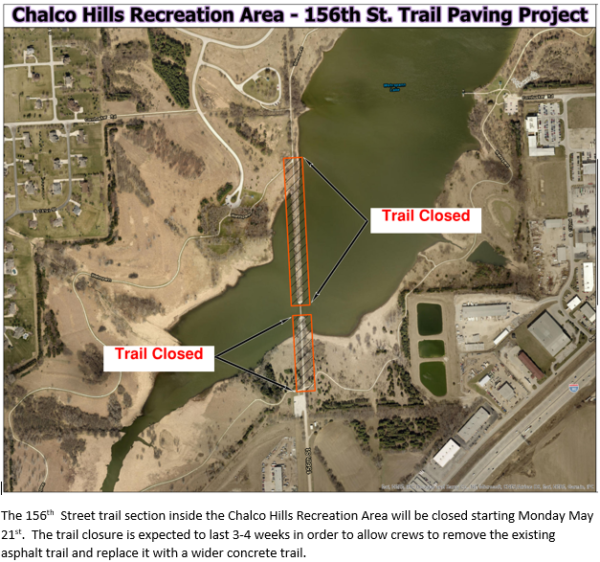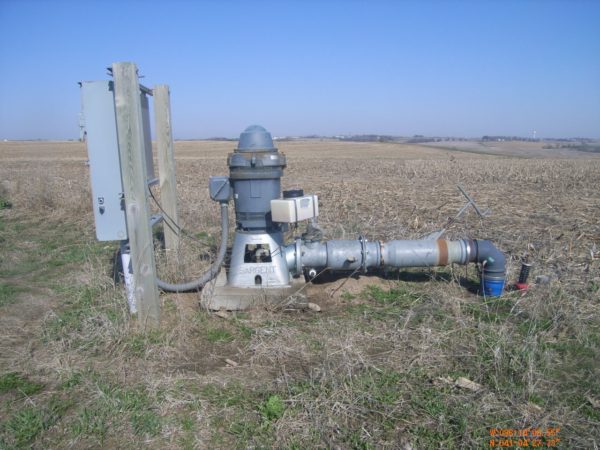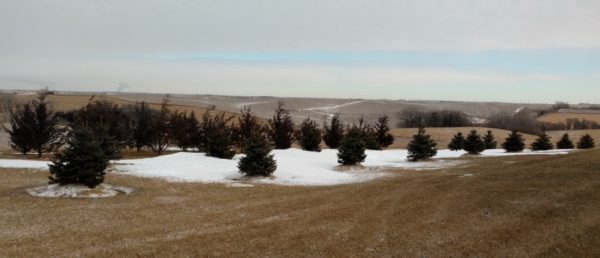Pesticide Container Collections for Dakota and Thurston County
Dakota and Thurston County farmers and pesticide applicators will again have the opportunity to recycle pesticide containers to help protect water and air quality in our area. One collection site will be staffed for inspection and the collection will be open to the public each Wednesday during June and July as follows:
South Sioux City – Central Valley Ag (Junction of U.S. Hwy 20 and NE 110)
11:00 a.m. to Noon

In addition to the 1, 2 and 5-gallon plastic containers, the 15, 30 and 50-gallon plastic drums will also be accepted for recycling. All plastic pesticide containers and drums must be properly cleaned and prepared to be acceptable for recycling. This includes being triple-rinsed or power washed and have the plastic caps and wrappers removed. These containers and drums must be free of visible chemical residue on the inside and outside.
This activity to help protect the environment is possible through the cooperation of the Omaha Tribe of Nebraska and Iowa, the Winnebago Tribe of Nebraska, the Papio-Missouri River Natural Resources District (NRD), UNL Extension, four agri-businesses, the Nebraska Loess Hills Resource Conservation and Development (RC&D) Council, and the Agricultural Container Research Council (ACRC).
During 2017 more than 13,000 plastic pesticide containers (nearly 4 tons) were inspected, collected and shredded to make more pesticide containers, parking lot stops, pallets, and plastic lumber. Since 1995 more than 232,000 (102.5 tons) containers have been recycled in Dakota and Thurston Counties and kept out of landfills.
For more information about recycling plastic agricultural pesticide containers contact your local NRD, RC&D, Extension office or USDA Service Center.






